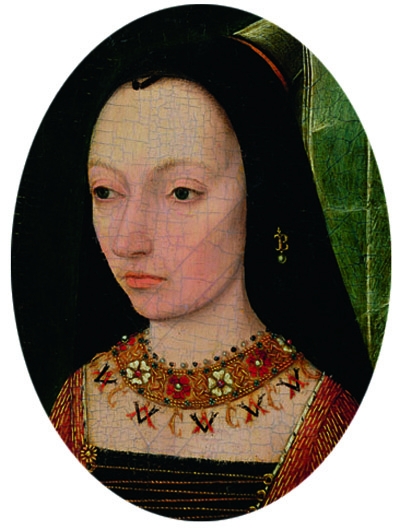The 15th century is beginning to supplant the Tudor age in its allure for historians and novelists. It comes replete with regicide, civil war and — what seems a necessity to the modern market — a wealth of strong queens, or ‘she wolves’ behind every ruler.
Sarah Gristwood’s sensitive approach marks out Blood Sisters as much more than the narrative of an age, however. It is an exploration of what it meant to be a medieval queen. The author focuses on the interplay and interdependence of seven women. We have the formidable Margaret Beaufort, who gave birth to Henry Tudor at the age of 13 and worked tirelessly to beat a path to the Tudor succession; Marguerite of Anjou, who at times single-handedly led the Lancastrian cause; Cecily Neville, mother of Richard III; the unfortunate Anne Neville, his wife; Elizabeth of York, wife of Henry VII; Margaret of Burgundy, her aunt (pictured above); and Elizabeth Woodville.
Gristwood provides insights into the challenges and risks faced by these characters. Each became entangled in the bloody civil wars that tore their families apart. Husbands were killed in battle, sons were murdered and sudden exile became an everyday reality. The topos of the turn of fortune’s wheel — beautifully displayed in an illuminated manuscript owned by Marguerite of Anjou — is used as a theme for the entire book, demonstrating the pathos of how one woman’s triumph became another’s personal tragedy.
The Wars of the Roses, or the ‘cousins’ war’, as the conflict was known, is a hard enough story to tell at the best of times. In describing what these noble women had in common, Gristwood is able to paint a compelling portrait of this bloody age, complete with the heartbreak and triumphs that went with it. But it must be remembered that it was a failure of kingship, particularly of the imbecile Henry VI, which created the vacuum that these formidable women were able to fill.
Much still remains mysterious about this turbulent period. Like a delicately woven tapestry, threads of evidence have to be gathered and pulled together with care. In the absence of much traditional material — letters or contemporary portraits — alternative sources must be sought. Gristwood does an excellent job of examining in splendid detail the sensory impact of ermines, cloths of gold, Spanish leather and purple velvet. And she has a deep understanding of the piety and religious devotion central to the age.
These women were remarkably determined to hold together their families. It was the combined efforts of Margaret Beaufort, Elizabeth Woodville and Elizabeth of York that put an end to a century of civil strife by establishing the Tudor dynasty. Medieval queens were far from being mere pawns in the game of thrones.





Comments